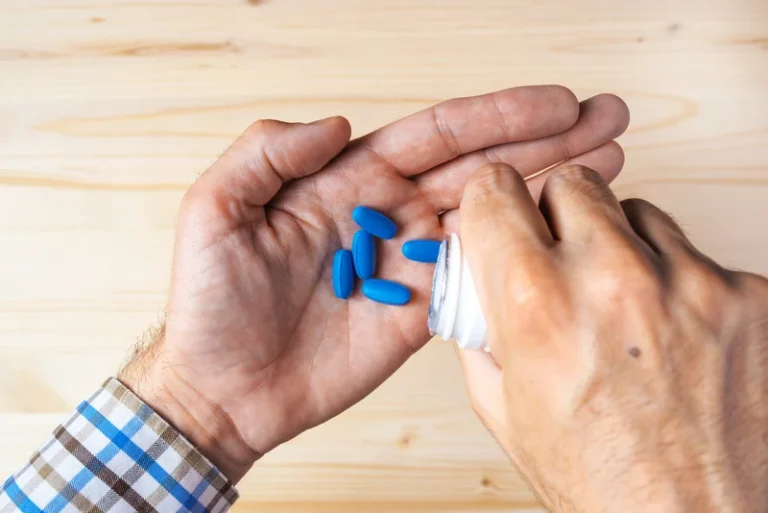Wet Brain: What Is Wernicke-Korsakoff Syndrome? FHE Health
11 Aug

We also bust some widely held myths and reveal some interesting facts about the brain. Evidence shows that heavy alcohol use modifies the structure and physiology of the brain, although the extent of recovery after years of abstinence is unclear. Get access to your health record, communicate with your doctor, see test results, pay your https://ecosoberhouse.com/ bill, request prescription refills and more. A naturally occurring nutrient that plays a crucial role in a variety of brain functions. It’s increasingly common for someone to be diagnosed with a condition such as ADHD or autism as an adult. A diagnosis often brings relief, but it can also come with as many questions as answers.
How To Diagnose Wet Brain
- We also bust some widely held myths and reveal some interesting facts about the brain.
- Many people’s knowledge of psilocybin – the primary psychoactive ingredient found in so-called “magic mushrooms” – is limited to its use as a recreational drug and perhaps its association with 1960s counterculture.
- Your GP can provide advice on how to restore your health and may also to refer you to a sleep specialist, dietician, psychologist or other specialist for additional support.
- Get access to your health record, communicate with your doctor, see test results, pay your bill, request prescription refills and more.
- If possible, it is best to have a regular sleep routine and avoid screen time and stimulating substances before hitting the hay.
Ketamine and psilocybin most likely work in largely the same way, although potentially on different circuits in the brain, Fonzo said. However, he said, psilocybin stands out as particularly promising. “This medication could be a game changer in the sense that these effects are larger than those of any existing treatment, and they persist after the treatment is done,” Bogenschutz said.

How to Identify What’s Causing Your Brain Fog
- There can however be many factors that can contribute to cognitive and physical fatigue, so it’s extremely worthwhile getting a check-up.
- If you need help, just hope your doctor isn’t at the end of an epic shift and feeling mushy-brained themself.
- One person dropped out of the trial after having found the first experience too difficult.
- This can lead to a serious neurological disorder known as “wet brain syndrome”—better known in the medical community as Wernicke-Korsakoff syndrome.
Following medical detoxification and complete physical and mental evaluation, people with wet brain disease receive intravenous administration of thiamine, magnesium, or both. Most patients see improvement in their physical and mush brain cognitive functioning within several weeks. Once they’ve been discharged from the hospital, patients should continue the regimen of taking oral thiamine and other recommended vitamin supplements. Wet brain, formally known as Wernicke-Korsakoff syndrome, is a type of brain damage that can occur after extended and repeated exposure to heavy drinking.

Can You Reverse the Effects of Wet Brain?
- One common brain imaging technique, called functional magnetic resonance imaging (fMRI), can measure activity in the brain while a person is performing different tasks.
- Nonetheless, alcoholism is typically the cause of the wet brain because alcohol interferes with the absorption of thiamine as well as the enzyme that activates thiamine in the body.
- Changes in vision begin with eyelid drooping and double vision, which are also similar to signs of alcohol intoxication.
- Although treatment will not change brain damage or memory loss that occurs from Korsakoff’s psychosis, it can prevent or delay any further progression of wet brain.
Other reports, however, have found sustained injury in certain areas. Some former alcohol abusers show permanent damage to the hippocampus, a brain region that regulates long-term memory and spatial navigation, and only partial resolution of lesions on the white matter. Several of these studies have shown that years of abstaining from booze can allow brain regions to return to their original volume and can repair neural connections across different regions. Much of this restoration occurs in the system most adversely affected by chronic alcoholism—the frontocerebellar circuitry, which regulates decision making, reasoning and problem solving. In addition to the RF, dreaming involves the limbic system, often referred to as the emotional brain.
Research from 2018 suggests hormonal changes can also cause brain fog. Poor sleep quality can interfere with how well your brain functions, according to 2021 research. Once you figure out the underlying cause, you can begin managing it. We’ve partnered with C60 Power to discuss six possible causes of brain fog.

